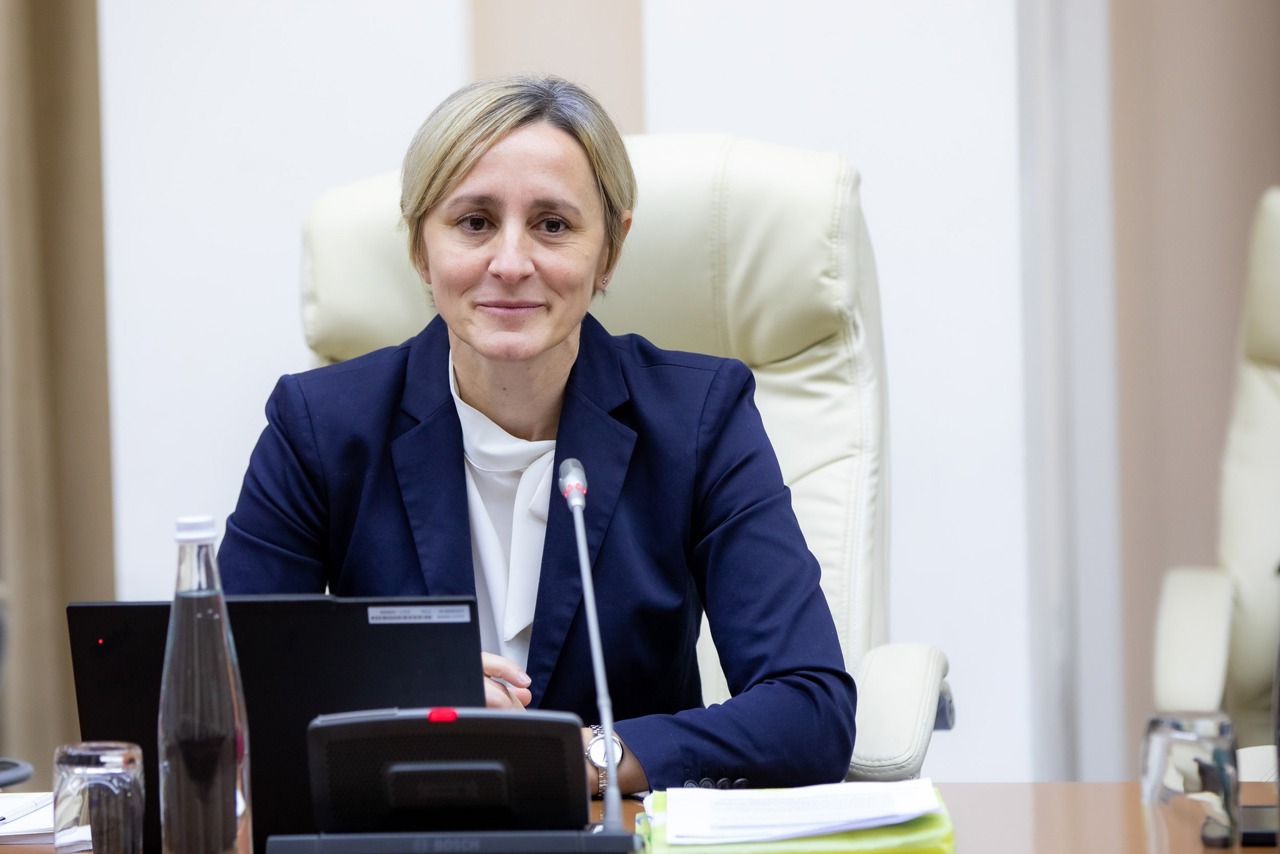Press review: Historical debt audit challenged by Gazprom; Accession negotiations open
Gazprom's disputed historical debt audit, the Kremlin's harsh reaction anticipated by experts, and sufficient legal steps to open accession negotiations - these are among the press topics Alla Ceapai reviews.

Agora.md quotes Energy Minister Victor Parlicov commenting on Gazprom's reaction to the results of the international audit commissioned by Moldova on Moldovagaz's historical debts and warning that it will defend its rights by all possible means. Minister Parlicov says the case could most likely go to arbitration in Moscow, as the contract stipulates, but that Gazprom's chance of recovering the alleged debt is extremely low, even in Moscow arbitration. The audit, which shows that the right bank of the Dniester owes $8.6 million of the more than $700 million debt claimed by the Russian concern, may not be recognised by either Gazprom or Moldovagaz's Board of Observers, but it underpins Moldova's position, Parlicov said in a broadcast on JurnalTV.
And on Moldova1, Victor Parlicov gave assurances that the Republic of Moldova will not be left without electricity in the event of a cut-off of gas supplies on the left bank of the Dniester, where the Cuciurgan thermoelectric power plant is located. From a technical point of view, electricity supply is also possible from other power plants, but we will have to pay more, the minister said. There will also be economic consequences in the Transnistrian region, which if it doesn't deliver electricity to the right bank, it makes its economy and budget vulnerable.
Stopping gas deliveries is one of the possible reactions of the Kremlin that experts anticipate. In a Radio Chisinau broadcast, political analyst Ion Tăbârță says that if the Russian Federation decides to stop gas supplies, the authorities in Chisinau will have to question how to supply energy resources to the Transnistrian region, which continues to use Russian gas, including to produce most of the electricity supplied to the right bank of the Dniester. According to the analyst, the Transnistrian region could be supplied from the same sources as the right bank, except that it will have to pay for the gas, which it has not done so far, and even if it agrees to pay, more gas will be needed, which will inevitably increase the price of electricity. In a commentary for Radio Moldova, energy expert Sergiu Ungureanu points out that the right bank of the Dniester is now buying electricity from the Transnistrian region at a fairly low price of around $68 per mW/h. If this source of electricity is no longer available, then we will have to buy energy from international exchanges, just like last year, when the price exceeded $320 per mW/h.
TVR Moldova quotes WatchDog community analyst Valeriu Pasha as saying that Moldova's electricity supply will be the smallest problem that will have to be managed if Gazprom stops delivering gas. The Republic of Moldova will quickly find solutions from where to buy energy, especially from Romania. And the big problem, according to the analyst, is that without Russian gas, the economy on the left bank of the Dniester evaporates and the Transnistrian region will enter a humanitarian crisis, which Moldova would also have to manage.
Ziarul de Gardă inserts the commentary of Moldovagaz's Board of Observers member Sergiu Tofilat, according to whom the audit result showing that Moldova has to pay only $8.6 million of the debt of over $700 million claimed by Gazprom is a preliminary result. There are still a few episodes to be clarified and Gazprom may eventually owe us, given all the violations that have happened, says Sergiu Tofilat.
In an interview with Free Europe, PAS MEP Olesea Stamate, one of the promoters of justice reform, says that enough has been done in this area to open negotiations on Moldova's accession to the European Union later this year. The authorities in Chisinau have met most of the European conditions for amending or adopting new laws. With reference to the conditionality on the investigation of resonance files and their completion, Stamate says some progress has been made. She says it is now up to the European Commission to judge how much is enough or not, but most of the actions we committed to implement have been implemented. Stamate also notes that there is still enough resistance within the system to justice reforms, which she says can be prevented by some representatives of the system, but not stopped.
In an editorial on deschide.md, analyst Mihai Isac writes that the disagreements in Gagauzia between representatives of the former Shor party and some deputies of the People's Assembly are in fact a fight for budgetary resources and personal interests. Gagauz local leaders are currently negotiating the price of betraying their own voters. These negotiations are about money and commercial advantages, as well as the sharing of offices in the upcoming local elections, notes the analyst. According to him, the pawns of pro-Russian politics in the Republic of Moldova will reconcile and after the approval of the new Executive of the Autonomy, the oligarch Shor will have full control over Gagauzia, which will be used as a phalanx against the constitutional authorities. The Gagauz example will be implemented in other regions of Moldova in local elections, Mihai Isac predicts. The authorities in Chisinau must clarify as soon as possible the relations between republican and autonomous bodies, rights and obligations, in order to remove this lever favourable to Russian interests.
In a commentary for Radio Moldova, political analyst Vladislav Kulminski explains the disagreements between Gagauz autonomy deputies and the Bashkan by the fact that the Gagauz People's Assembly does not want to be used as a political stick by Ilan Shor in the fight with the Chisinau authorities. Behind the new Gagauz Bashkan is Ilan Sor, who wants to impose his own rules of the game in the region, but the deputies of the People's Assembly do not agree with both the new composition of the executive and some of the Bashkan's approaches, which contravene local legislation, says the analyst. It is absolutely obvious to him that handing over power to Shor is harmful to the Gagauz autonomy, which has found itself in total diplomatic isolation, with investments stopped.
Ziuadeazi.md from Cahul reports that three kindergartens in the district will produce green energy for their own consumption, thanks to an external project financed by the Austrian Development Agency. On the roofs of kindergartens in the villages of Manta, Slobozia Mare and Giurgiulești, photovoltaic power plants were purchased, installed and commissioned, and the cost of the works was 80% of the project's financial sources and 20% of the LPAs' financial contribution. The capacity of the panels corresponds to the volume of electricity required for each of the pre-school institutions. Thanks to the photovoltaic systems, CO2 emissions will be significantly reduced. The mayors of the three municipalities say the project is a concrete example of strengthening measures to adapt to climate change and promote renewable energy.
The Northern Observatory of Soroca reports that another step has been taken towards the construction of the sewage treatment plant in the municipality of Soroca, referring to the decision approved by the Government, which provides for the exchange of land in the municipality's urban area with the land of the forestry fund located in the outskirts of the village of Vasilcău. The selected land is a rocky area and is of low quality, which is why it was assessed as the only acceptable land in terms of environmental and social impact for the location of the treatment plant, which is part of the project "Security of water supply and sanitation Moldova". The project for the construction of the wastewater treatment plant is of major importance, including transboundary, and is always the subject of joint discussions with representatives of the central public authorities of Ukraine, said Environment Minister Iordanca-Rodica Iordanov.





